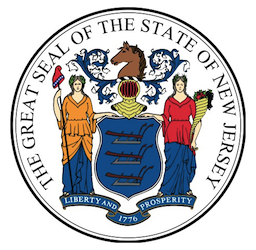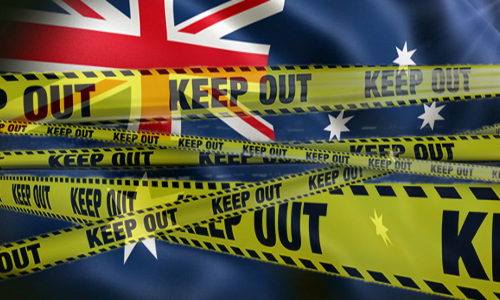New Jersey DGE Warns Licensees Against Operating in Australia
The New Jersey Division of Gaming Enforcement (DGE) is not messing around when it comes to its online gambling licensees operating in grey or black markets. In a letter dated late last week and sent to online gaming operators in the state, the DGE told them to get out of Australia or face the consequences.
 In mid-August, the Australian Senate passed the Interactive Gambling Amendment Bill 2016; the changes made to the country’s online gambling laws took effect a month later. While the bill official legalized some online gambling, it effectively killed the online poker industry in Australia.
In mid-August, the Australian Senate passed the Interactive Gambling Amendment Bill 2016; the changes made to the country’s online gambling laws took effect a month later. While the bill official legalized some online gambling, it effectively killed the online poker industry in Australia.
While that sounds odd at first, here is what happened. The new laws required all online operators to apply for and be granted licenses to offer their services in Australia. That’s all fine and dandy, and is certainly quite reasonable, but the problem is that the only internet gambling permitted under IGA is sports betting. Thus, operators can file for internet sports betting licenses, but not online poker or online casino licenses. Online poker is effectively illegal.
Before IGA even passed, some online gambling operators – including 888 – withdrew from the Australian market. Afterward, a couple biggies, PokerStars and partypoker, did the same. PokerStars, which pulled out September 11th, told its Australian customers, in part:
As supporters of sensible online gaming regulation and the most licensed poker brand in the world we hope that future legislation will be considered that will allow PokerStars to return to Australia. The Australian Online Poker Alliance has done great work lobbying on behalf of Australian poker players this year, so if you’re yet to sign up (for free) then it only takes a moment to do so….
partypoker Managing Director Tom Waters said in statement on the partypoker blog, “We regret that this day has come as Australia is a strong poker market. We will continue to work with the Australian player alliance to lobby the government to provide a safe regulated environment for residents to play online poker in the future.”
When the Interactive Gambling Amendment Bill took effect in mid-September, the Acting Chairman of the Australian Communications and Media Authority (ACMA) wrote to New Jersey DGE Director David Rebuck, explaining the new law and referencing a Director’s Advisory Bulletin (DAB) issued by Rebuck in April 2016. The DAB, using the summary provided by Rebuck himself, “….clarified the Division’s position on the licensing implications of New Jersey applicants and licensees offering online gaming services in jurisdictions where the laws were ambiguous or not enforced (‘grey markets’). The DAB states that when a grey market jurisdiction takes an affirmative step to enforce its restrictions on online gaming…the Division will categorize that jurisdiction as a black market where companies are not permitted to offer their services.”
Because Australia has now made such an effort to enforce its restrictions, New Jersey considers it a black market. Acting Director Richard Bean in the ACMA letter said, “….we would appreciate your assistance in informing online gaming operators licenses in New Jersey about the above changes so they can take the necessary steps to ensure they are not at risk of contravening, or facilitating a contravention of, Australian law.”
As such, in his letter to the legal counsel of New Jersey’s online gaming operators, Rebuck has done just that. He wrote that all New Jersey licensees “….must comply with Australia’s new laws and cease offering all prohibited services to customers in Australia. Failure to do so many result in the Division taking regulatory action against your company, including finding your company unsuitable for licensure in New Jersey.”
Further, he requested that the companies furnish the DGE specific information within 15 days of the letter dated September 29th. For business to consumer (B2C) operators, meaning those companies that offer things like online poker to us poker players, they are required to outline what steps they have taken to block Australian players from their tables and when this will happen. If they are still open to Australians, the B2C companies must explain why. This explanation even applies to sports betting, which, as mentioned, is legal in Australia, as long as the operator has been granted a license.
Business to business (B2B) providers must show what steps they have taken to make sure the B2C operators they partner with have stopped serving Australian customers and when they will be done for good. They must also explain any continued presence in the Australian market. This seems like it may be a bit more difficult for B2B companies, as they don’t have as much control over this as the B2C operators do.




















COMMENTS